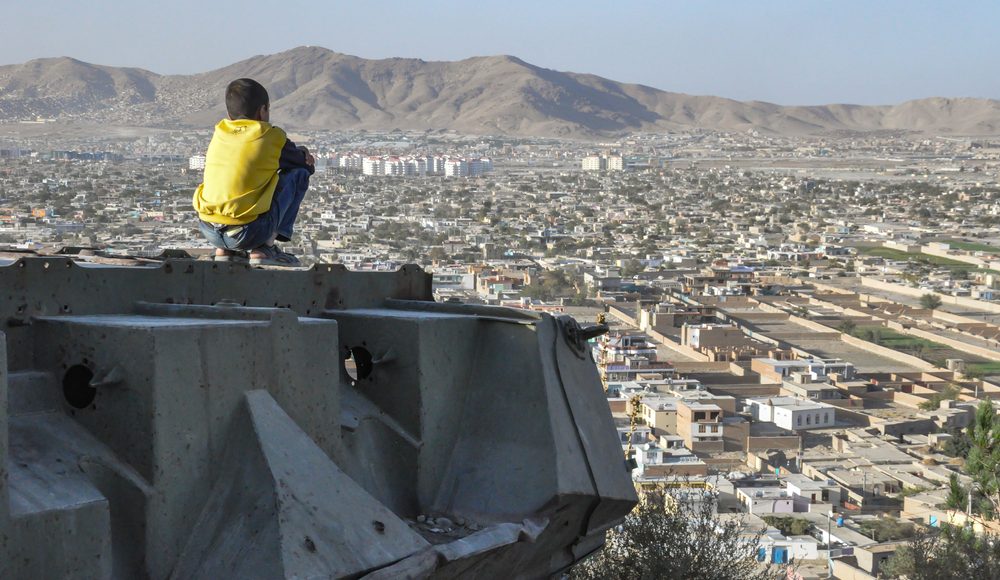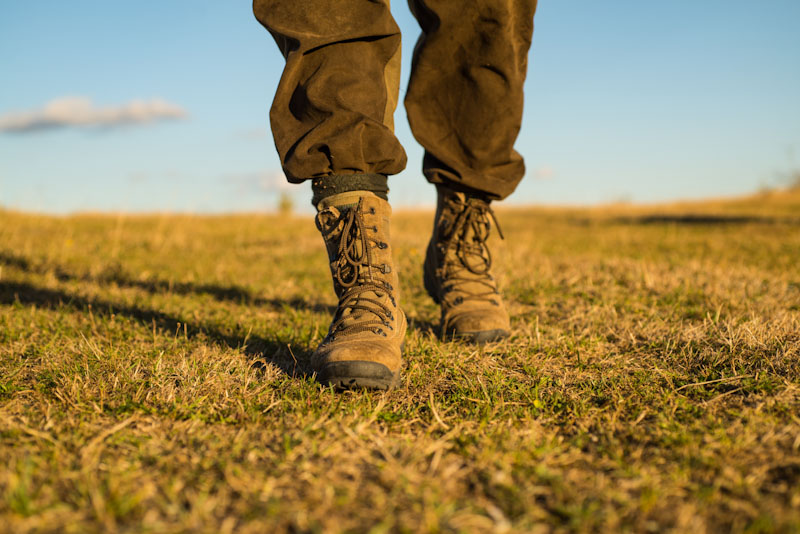As I sit here, writing this, we see the situation in Afghanistan crumble. After 20 years of trying to fight terrorism and bring democracy to that country, we’re pulling out; and that pullout has turned into a disaster.
I’m not saying that we shouldn’t be pulling out; that move is long overdue. My issue is with how we are pulling out. It looks like there was no planning from where I sit, and the President just pulled the plug. That has left thousands of Americans and Afghanis who are our allies at risk, and the President is now saying that they can’t guarantee their safety or bring them all home.
President Trump’s team had negotiated a withdraw with the Taliban, where we would pull out of Afghanistan by May 1st of 2021. President Biden’s withdrawal date is a full 100 days later, on August 31st. In other words, there were another four months to plan and begin moving people out of the country.
Yet, not only did the government fail miserably at moving people out, but Biden closed down a part of the State Department, established under Trump’s presidency, which existed explicitly to help American citizens in such time. In his desire to undo everything his predecessor had done, he made it more dangerous for American citizens caught in Afghanistan.
I hate to say this, but this sort of thing is why many Americans no longer trust our government. Why do we have a military if it isn’t to protect American interests and American citizens? Dose the sitting President think that American interests are served by not protecting American citizens? He’s been accused of thinking some strange things, but that one would take the cake.
In April, President Biden publically declared, “We will not conduct a hasty rush to the exit. We’ll do it – we’ll do it responsibly, deliberately, and safely.” Well, that sure hasn’t happened. I don’t want to talk about why things have happened the way they have or waste a lot of time and energy analyzing the situation and finger-pointing.
There will be plenty of that, and that’s not my job. My job is to help you survive. That’s what I want to focus on.
What would you do if you found yourself in the situation those Americans are in right now?
One important thing to realize is that there is no real excuse for anyone not to think this will happen. I can fully understand their misjudging how fast the Taliban would advance, taking over the country, and I can fully understand them not being aware that the Taliban had bribed military commanders so that they would face minimal opposition. But if our government didn’t think that the Taliban would take over once we pulled out, why did we negotiate the pullout date with them instead of with the Afghani government?
Based on this, let’s look at what we would have to do if we were some of those people living in Afghanistan.
Know Your Environment
The United States has had people in Afghanistan for 20 years now. Not all those people were military or in the US embassy. Some were journalists, others were government contractors, and still, others were probably business people trying to make a buck, bringing their products and services to that country, in an action that happens around the world.
The difference is, anyone going into Afghanistan should have realized that they were going into a dangerous situation. This was a country at war, with our military there initially to defeat the Taliban and then train the Afghani army how to fight to suppress the Taliban without our intervention.
Even so, before the withdraw was negotiated, the Taliban pretty much controlled the southern half of the country, so there’s no excuse for thinking that peace had broken out, even though we haven’t suffered a single military casualty there in over a year.
But the point is that people who went to Afghanistan should have realized they were going into a dangerous situation. Regardless of any statements by their companies or the government that they would be evacuated safely should things go wrong, it would only make sense to develop their bug-out plans, even as a backup. We do that here at home. Why wouldn’t we do it while living in another country?
That would probably entail building a bug-out bag and cache of supplies, as well as a bug-out route and supply caches, all the same things we’d have to do at home. There have been armed security contractors in Afghanistan all along, so we know that it is possible and legal to obtain firearms. While I wouldn’t want to face off against a truck full of Taliban fighters alone, I’d much rather do that with weapons than with my bare hands.
Know Your Potential Enemy
There are potential enemies in any environment; I don’t care where you go. At home, ordinary criminals can be considered to be enemies. As a country that has been torn by violence for centuries, there are more than enough enemies to go around.
The Taliban is the biggest enemy over there, but they aren’t the only ones. Afghanistan has been a cradle for terrorist groups like Al Qaeda. That’s why our military went in there in the first place. But it’s not just terrorist organizations that are the concern; the Afghani people themselves are a danger.
The political construct known as Afghanistan consists of several tribes who have warred against each other constantly. The country is known as the “destroyer of empires” because, for thousands of years, conquerors have had their armies eaten up by warfare in Afghanistan, causing one after another to pull out. I’m not just talking about recent times; the same tribal conflict existed in the times of Alexander the Great and Genghis Khan.
This alone is enough cause for concern. Living in a country where violence is a way of life puts everyone at risk, even without a populist uprising taking over the country. That’s something to be prepared for.
Developing a Multi-Faced Afghani Bug Out Plan
Kabul, the capital of Afghanistan, is a mere 240 km from Landi Kotal, Pakistan, by road. In regular times, it can be driven by car in less than 4 ½ hours. While Pakistan might not be our number one choice as a country to bug out to, considering the situation in Afghanistan, it’s a vast improvement. We have good diplomatic relations with Pakistan, with them being an ally in the War on Terrorism.
A valid passport and visa are required to travel to Pakistan, and there is no provision for getting a visa at the border. So unless you want to take a chance as being accepted as a political refugee, it would have been a good idea to get a visa back when talk of withdrawing was first being starting, just in case. Entering Pakistan without a visa is a guaranteed trip to jail.
First and Second Stage Bug Out Plans
The best and easiest thing to do would have been to get on an airplane before things got terrible and get out of Kabul. While I’m sure there were a few people who did that or whose companies recalled them, I’m equally sure that a lot of people were hoping for the best and didn’t avail themselves of that opportunity before the State Department suggested it. When the State Department finally did get around to sending out an e-mail to everyone they knew were in the country to show up at the airport, the gates were locked, and nobody was there to receive them.
This brings up a good point; if you’re in a foreign country, especially one with a potential for unrest, make sure that you’re registered with the US embassy or consulate so that the State Department knows where you are. That might not do you any good, but it might provide you with some invaluable information. The State Department is good at letting Americans abroad know about changes in the political situation and any dangers.
With a visa in hand, the first stage of an Afghani bug-out plan is driving to the border with Pakistan. A couple of trial runs, going there for the weekend would have been a good idea, seeing what the road is like and what sort of accommodations are available across the border in Landi Kotal.
If I were unable to make it out by aircraft, that would be my next choice. But, and I must emphasize this, that would depend on whether the government-held control of the roads or the Taliban did. The route I mentioned a moment ago to Landi Kotal was through contested areas. Still, there is another route, just a bit farther south, which is just about as long and goes through territories under government control until August 13th, which could be used.
So don’t just count on one route. I’ve always said that multiple bug-out routes are necessary, and this situation proves the point. Just as with the first route, this one would have to be scouted out, including on the other side of the border. That’s a good project for the weekends; who doesn’t like going for a drive in the country and seeing new scenery?
Please note that it would have been possible to get out this way even after the Taliban started their rapid advance, taking over the country. The very fact that they were advancing should have been enough reason for anyone to bug out, regardless of the situation. After all, we’re talking about a terrorist organization here, not the Girl Scouts.
Third Stage Bug Out Plan
Afghanistan is an ideal example of why we need multiple bug-out plans, including those where we bug out on foot. Pictures out of Kabul (the capital) show the city streets turned into a parking lot, just like we all expect to see happen in any major evacuation. Afghani citizens are trying to flee the Taliban, either because they have some connection to our government (such as translators who worked with our military) or because they don’t want to live under Taliban rule.
When the Taliban was in control before, they held to a very strict interpretation of Sharia Law. As they’ve been expanding their control over Afghanistan, word has gotten out that they’ve been killing Christians, turning captured women into either sex slaves or child brides, and taking names of people who worked with the US military for later execution. Shots have been fired against civilians, including opening fire indiscriminately with automatic weapons. The situation is dangerous.
With that being the case, it could very well be suicidal to try and drive out of Kabul, even by the previously mentioned routes. I wouldn’t be surprised at all if the Taliban has set up roadblocks, and I wouldn’t want to have to try and tell them where I was going. Somehow, I don’t think that they would take kindly to someone trying to escape, even or perhaps especially an American.
That leaves getting out on foot. For someone who can’t get into Kabul or who can’t get into the airport, that’s the only option available. But Afghanistan is made up of some of the roughest terrains in the world, making getting out on foot extremely hard. It’s also at a very high altitude. I’m not trying to say that it is impossible, just that it is hard. Anyone trying it had better be in shape and be prepared to cover some rough terrain.
Can that be done? I’d say the chances are pretty good. The rough terrain works to anyone’s advantage that’s trying to bug out on foot.
While the Taliban is accustomed to operating in that rough terrain, they’re currently in the cities and on the roads, where they can control the nation. That means there are very few of them patrolling the mountains I’m talking about. Those mountains also reduce visibility, making it hard to see someone who is not nearby.
But it’s a long walk. If we assume the distance the road takes, we’re talking about 240 km or 150 miles. At an average hiking speed of 2 MPH, that’s 75 hours of walking, if you could follow the road. Staying off the road and out of sight will likely double that distance, turning it into 150 hours, or 15 days of walking 10 hours per day.
The northern of those routes I mentioned is much better for water than the southern one, as the roads follow existing waterways. While it would be necessary to stay off the streets, it would also be required to return to them occasionally to get water. That’s going to be risky every time and should probably be done at night when it would be harder to be seen.
A Final Word
This was merely a mental exercise, as I’m not on the ground in Afghanistan and don’t know any more about what is happening there than anybody else.
But as a real-life SHTF scenario, it shows us very clearly just how hard getting out of Dodge can be. There is no bug in option for those currently in Afghanistan, as the Taliban is already going from door to door, confiscating weapons and making lists of who is there. Those lists are already being mentioned as execution lists for American sympathizers and other “undesirables.”
The best option would have been to get out early before things became as bad as they are now. For those who remain, the question is whether or not they can make it to the airport in Kabul and then whether or not the US Air Force will manage to get them out of the country. Their other option, walking out, will be hard, if they can manage it at all.
While it’s hard to imagine a realistic scenario here at home where things could get this bad, there are many places in the world where it can.
Afghanistan isn’t the only dangerous place to be right now. Anyone traveling abroad must consider the risks associated not only with going to that destination country but in every country in-between, just in case their airplane is forced down by weather or mechanical failure.
If I were to take such a trip overseas, I would be more than willing to pay the extra baggage fee to carry a bug-out bag or other emergency kits with me. I carry that along when I’m traveling here in the United States, so why would I even consider taking a trip abroad without doing so as well?











James H Gregg | August 24, 2021
|
Trump actually with Steven Miller shutdown the SIV program. Which is why getting our translators out of country has been so hard. Which of course changed the dynamics of the evacuation. Not giving Biden a pass, just saying that there was other stuff that impacted the mission. Trump’s ceasefire/surrender to the Taliban and subsequent reduction of troops from 14,000 to 2,500 impacted it as well. Biden trusted intelligence assessments that were obviously wrong is another takeaway. Listen to the troops probably had better results. I sort of expect a few generals and intelligence chiefs getting canned when this is over. But at least Biden took responsibility for the disaster. The buck does stop at the WH.
D | August 24, 2021
|
FYI. Afghani usually refers to their money. The people are called simply called Afghan.
alfie | August 24, 2021
|
Well, it is a toss up on who is calling the shots ( so to speak ) over there. Is it Biden, or Obama or someone else ? Either way it is a real cluster loving.
Laurie | August 25, 2021
|
Thank you Bill, this was pretty good insight. I have a bag ready to go, but realizing I’m eventually going to have to bug out walking gave me some ideas.